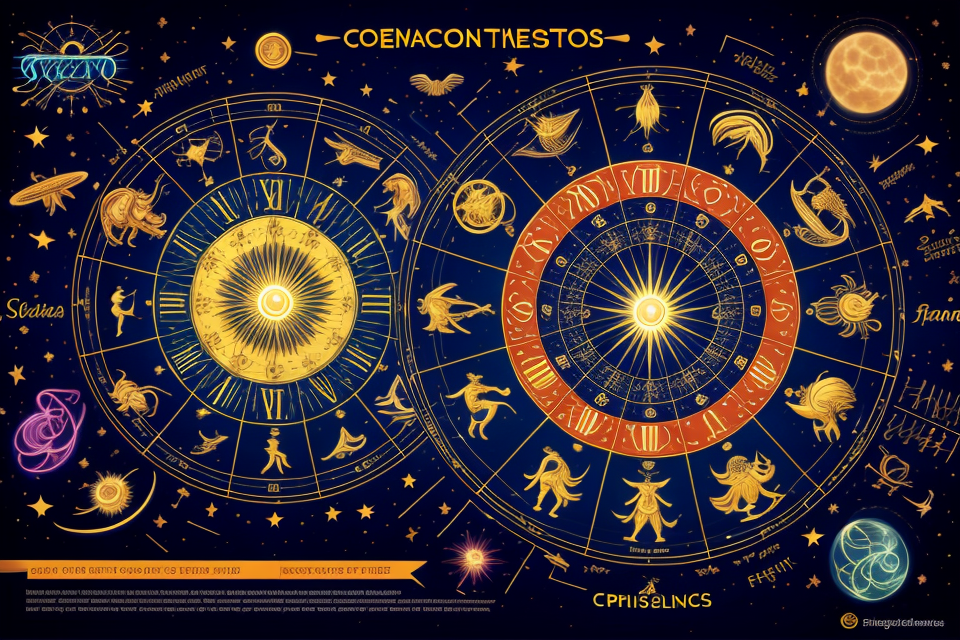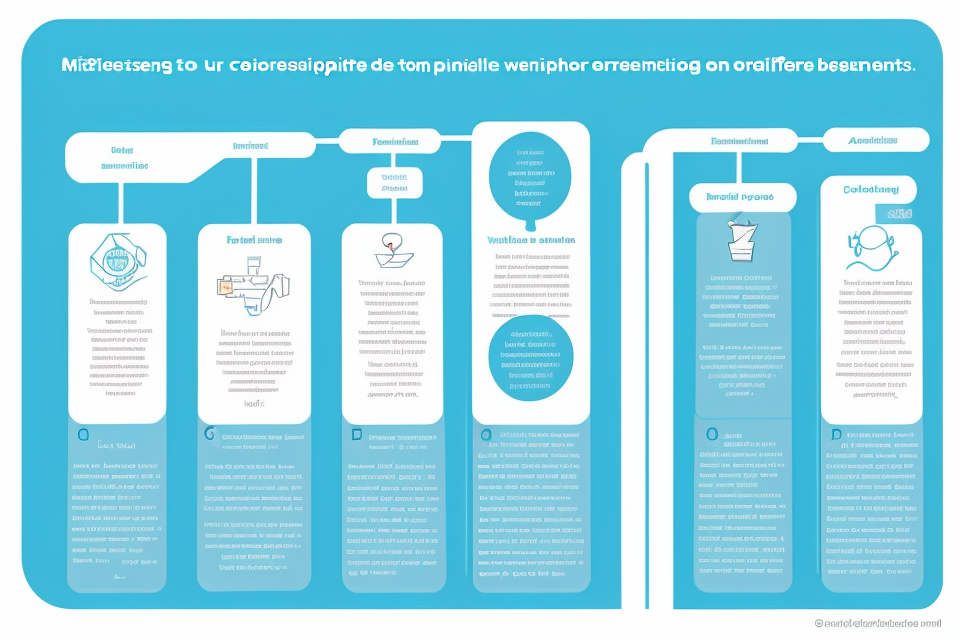
Are you a hopeless romantic, forever seeking the perfect match? Or maybe you’ve been burned by love in the past and are wary of getting involved again. Whatever your situation, the question remains: which signs truly matter for compatibility in a relationship? The stars have a say in this matter, and in this article, we’ll delve into the mysterious world of astrology to unlock the secrets of relationship compatibility. So, grab a cup of coffee, sit back and let’s explore the cosmic connection that can make or break your next romance.
The Importance of Compatibility in Relationships
Why Compatibility Matters
In the fast-paced world we live in, finding the right partner can be quite challenging. However, when it comes to building a lasting relationship, compatibility plays a crucial role. Understanding why compatibility matters is essential for anyone looking to form a long-term connection with someone else.
- Successful Relationships and Compatibility
Compatibility is the foundation of successful relationships. It refers to the extent to which two individuals share similarities in values, beliefs, interests, and personalities. When two people are compatible, they are more likely to understand each other’s needs, desires, and expectations. This understanding fosters trust, respect, and communication, which are all essential ingredients for a healthy relationship.
- Identifying Potential Consequences of Incompatibility
On the other hand, incompatibility can have severe consequences for a relationship. When two people are incompatible, they are likely to experience frequent conflicts, misunderstandings, and a lack of emotional connection. Over time, these issues can erode the trust and respect that are necessary for a relationship to thrive. As a result, incompatible couples may experience higher levels of stress, anxiety, and depression, which can ultimately lead to the demise of the relationship.
Therefore, it is crucial to understand why compatibility matters in relationships. When two individuals are compatible, they are more likely to navigate life’s challenges together, build a strong emotional connection, and enjoy a lifetime of happiness and fulfillment.
Key Compatibility Factors
Emotional Compatibility
Emotional compatibility is a crucial factor in determining the success of a relationship. It involves understanding and sharing each other’s emotions, as well as being able to communicate and express them effectively. Emotional compatibility can be influenced by factors such as personality traits, attachment styles, and past experiences. When partners are emotionally compatible, they are better equipped to navigate through challenges and conflicts, as they can understand and support each other’s emotional needs.
Intellectual Compatibility
Intellectual compatibility refers to the degree to which partners share similar intellectual interests and abilities. This factor is important because it influences the quality of communication and the level of mutual understanding between partners. When partners have similar intellectual interests, they can engage in stimulating conversations and share ideas, which can strengthen their connection and deepen their understanding of each other. On the other hand, intellectual incompatibility can lead to misunderstandings and a lack of shared interests, which can strain the relationship over time.
Life Goals and Values
Life goals and values are another important aspect of compatibility in relationships. Partners who share similar values and life goals are more likely to have a strong sense of shared purpose and direction in their relationship. This can help to foster a sense of commitment and loyalty, as well as provide a framework for decision-making and goal-setting. Conversely, when partners have significantly different values and life goals, it can create tension and conflict, which can ultimately lead to the breakdown of the relationship.
Communication Styles
Effective communication is a cornerstone of any successful relationship. Partners who are compatible in terms of their communication styles are more likely to be able to express themselves clearly and effectively, as well as listen and respond empathetically to their partner’s needs. Communication compatibility can be influenced by factors such as cultural background, personality traits, and past experiences. When partners are able to communicate effectively, they are better equipped to resolve conflicts and build a strong foundation of trust and understanding.
Zodiac Signs and Compatibility
Astrology Basics
Astrology is an ancient belief system that has been around for thousands of years. It is based on the idea that the position of the stars and planets at the time of a person’s birth can influence their personality and life events. The zodiac is a circle of twelve signs, each of which is associated with a specific month of the year and a particular section of the sky. The twelve signs are Aries, Taurus, Gemini, Cancer, Leo, Virgo, Libra, Scorpio, Sagittarius, Capricorn, Aquarius, and Pisces.
Astrology is used to understand the personality traits, strengths, weaknesses, and compatibility of individuals. It is believed that the positions of the planets and stars at the time of a person’s birth can influence their personality and life events. For example, a person born under the sign of Cancer is thought to be emotional and nurturing, while a person born under the sign of Capricorn is thought to be ambitious and practical.
Astrology is a complex and intricate system that has been studied for centuries. It is believed to have originated in ancient Babylon and was later developed by the Greeks and Romans. Today, astrology is still widely practiced and is used to gain insight into the workings of the universe and the relationships between people.
Zodiac Signs and Relationships
The role of zodiac signs in relationship compatibility has been a topic of interest for many people for centuries. Astrology has been used to analyze the traits and characteristics of individuals based on their birth signs, and it is believed that these signs can play a significant role in the success or failure of a relationship.
Each zodiac sign has its own set of common characteristics, which can impact how they interact with others in a relationship. For example, an Aries is known for being energetic and passionate, while a Taurus is known for being reliable and practical. These traits can lead to conflicts or misunderstandings if not properly understood and managed.
In addition to these common characteristics, each zodiac sign is also associated with certain stereotypes. These stereotypes can be both positive and negative, and they can impact how individuals perceive themselves and their relationships. For example, a Leo is often associated with being confident and charismatic, but they can also be seen as arrogant and demanding.
It is important to note that while zodiac signs can provide insight into an individual’s personality and behavior, they should not be used as the sole determining factor in a relationship. Relationships are complex and multifaceted, and there are many other factors that can impact compatibility, such as communication, shared values, and mutual respect.
Compatibility in Practice: Success Stories and Pitfalls
Success Stories
Compatibility in Long-Term Relationships
One example of a successful, compatible relationship is the marriage between Bill and Melinda Gates. They met in college and have been together for over 30 years. Despite their different personalities and backgrounds, they have found ways to balance each other out and support each other’s goals and interests.
Another example is the relationship between Barack and Michelle Obama. They met in law school and have been together for over 25 years. They have demonstrated a strong commitment to each other and have worked together to overcome challenges and achieve their shared goals.
Compatibility in Romantic Relationships
In romantic relationships, compatibility can be seen in the way that partners support each other’s growth and development. For example, actor Tom Hiddleston and singer Taylor Swift had a brief relationship, but during their time together, they encouraged each other’s creative pursuits and provided emotional support.
Another example is the relationship between actor Justin Theroux and actress Jennifer Aniston. They were together for several years and demonstrated a strong sense of compatibility by supporting each other’s careers and personal interests.
Compatibility in Friendships
Compatibility can also be seen in friendships, where partners share common interests and values. For example, actresses Emma Watson and Dakota Fanning have been friends for over a decade and have supported each other’s personal and professional growth.
Another example is the friendship between actors Leonardo DiCaprio and Tobey Maguire. They have been friends for over 25 years and have supported each other’s charitable endeavors and philanthropic pursuits.
In all of these examples, compatibility is demonstrated through partners’ ability to support each other’s goals and interests, while also respecting each other’s individuality and differences.
Pitfalls
Common Misconceptions about Compatibility
One common misconception about compatibility is that it is solely based on astrology or horoscopes. While these can provide some insight into a person’s general personality traits, they do not take into account the individual’s unique experiences and circumstances. Another misconception is that compatibility is solely based on shared interests or hobbies. While these can be important, they are not the only factors that contribute to a successful relationship.
Relationship Deal Breakers
Relationship deal breakers are certain non-negotiable characteristics or behaviors that a person finds unacceptable in a partner. These can include things like infidelity, abuse, or a lack of ambition. It is important to identify deal breakers early on in a relationship, as they can significantly impact the success of the partnership.
How to Navigate Incompatibility Issues
Even if a couple has identified incompatibility issues, it is still possible to navigate them and build a successful relationship. This may involve seeking outside help, such as couples therapy, or making individual changes to better align with the other person’s needs and preferences. Communication and compromise are key in navigating incompatibility issues.
Assessing Compatibility: Tools and Techniques
Self-Assessment
Understanding your own needs and desires is the first step in assessing compatibility in a relationship. It is important to identify the non-negotiable qualities and values that you require in a partner, as well as the areas where you are willing to compromise.
To begin the process of self-assessment, consider the following:
- What are your core values and beliefs?
- What are your emotional needs and how do you communicate them?
- What are your expectations for a relationship?
- What are your deal-breakers?
It is also important to identify areas for improvement in yourself. Recognizing your own flaws and working on them can help you become a better partner and improve the overall quality of your relationships.
Additionally, it can be helpful to seek feedback from trusted friends or family members about your relationship habits and patterns. They may be able to provide valuable insights into areas where you may need to improve or grow.
Overall, self-assessment is a crucial component of assessing compatibility in a relationship. By understanding your own needs and desires, as well as areas for improvement, you can gain a deeper understanding of what you bring to the table and what you require from a partner.
Couple Assessment
Effective communication is a crucial component of any successful relationship. To evaluate communication styles, partners can engage in a series of exercises designed to identify their preferred communication methods. This may include role-playing scenarios to assess how each partner prefers to express themselves or to resolve conflicts. It is important to note that there is no one-size-fits-all approach to communication, and what works for one couple may not work for another.
Conflict Resolution Strategies
Conflict is an inevitable part of any relationship, and the ability to resolve conflicts effectively is essential for maintaining a healthy partnership. Couple assessments can help partners identify their preferred conflict resolution strategies, such as avoidance, compromise, or confrontation. Understanding these preferences can help partners navigate conflicts more effectively and build a stronger relationship.
Shared Values and Goals
Shared values and goals are the foundation of a strong and lasting relationship. Couple assessments can help partners identify their core values and goals, as well as how aligned they are with one another. This information can be used to facilitate meaningful conversations about the future of the relationship and to ensure that both partners are working towards a shared vision. Additionally, identifying areas of misalignment can help partners work towards greater understanding and compromise.
Making Compatibility Work: Tips and Strategies
Building a Strong Foundation
- Effective communication
- Active listening
- Open and honest expression of thoughts and feelings
- Use of “I” statements to avoid blame and criticism
- Shared experiences and interests
- Engaging in activities together
- Exploring new hobbies and interests as a couple
- Supporting each other’s individual interests and passions
- Mutual respect and trust
- Showing appreciation and gratitude
- Keeping promises and being reliable
- Being honest and transparent in all aspects of the relationship
Effective communication is the cornerstone of any strong relationship. It is essential to actively listen to your partner and express your thoughts and feelings in an open and honest manner. Using “I” statements can help avoid blame and criticism, and promote constructive conversation.
Shared experiences and interests can strengthen the bond between partners. Engaging in activities together, exploring new hobbies and interests as a couple, and supporting each other’s individual interests and passions can create a sense of shared experiences and foster intimacy.
Mutual respect and trust are also crucial for relationship compatibility. Showing appreciation and gratitude, keeping promises and being reliable, and being honest and transparent in all aspects of the relationship can build a strong foundation of trust and respect.
Navigating Incompatibility
In any relationship, it’s common to encounter areas of incompatibility between partners. These disagreements can range from minor issues to more significant deal breakers. However, with the right approach, navigating incompatibility can be an opportunity for growth and strengthening the relationship. Here are some tips on how to effectively handle incompatibility:
Addressing deal breakers
Deal breakers are specific issues that, if not resolved, can lead to the end of a relationship. These can include differences in values, goals, or lifestyle choices. When addressing deal breakers, it’s important to have an open and honest conversation with your partner. This conversation should involve identifying the specific issue, discussing how it makes each partner feel, and exploring potential solutions.
It’s also crucial to recognize that compromise may be necessary. This may involve one partner making changes to their behavior or lifestyle to accommodate the other. However, it’s essential to ensure that any compromise reached feels fair and equitable to both partners.
Compromise and negotiation
Effective compromise and negotiation are key to navigating incompatibility. This involves finding a middle ground that works for both partners. Compromise can be difficult, but it’s essential to remember that relationships require effort and sacrifice from both parties.
When negotiating, it’s important to focus on the underlying needs and desires of each partner. This can help to identify the root cause of the incompatibility and work towards a solution that meets both partners’ needs.
Seeking professional help when needed
Sometimes, even with the best efforts, incompatibility can be too difficult to overcome. In these cases, seeking professional help may be necessary. A therapist or counselor can provide an objective perspective and help partners navigate their differences.
It’s important to remember that seeking help is not a sign of weakness or failure. Instead, it’s a sign of commitment to the relationship and a willingness to work through challenges. With the help of a professional, partners can develop the skills and strategies necessary to navigate incompatibility and strengthen their relationship.
FAQs
1. What are the most important signs for compatibility in a relationship?
The most important signs for compatibility in a relationship are the Sun, Moon, and Ascendant signs. These signs are part of the astrological birth chart and can provide insight into a person’s personality, emotional needs, and overall compatibility with others. Other factors such as Venus and Mars signs can also be considered, but the Sun, Moon, and Ascendant are the most crucial.
2. How do the Sun, Moon, and Ascendant signs affect compatibility?
The Sun, Moon, and Ascendant signs can affect compatibility by revealing how well two people align in terms of their personalities, values, and emotional needs. For example, if two people have compatible Sun signs, they may have a strong connection and be able to bring out the best in each other. On the other hand, if their Moon signs are incompatible, they may struggle with emotional intimacy. The Ascendant sign can also indicate how two people approach relationships and how they perceive each other.
3. Can compatibility be improved if the signs are not initially compatible?
Yes, compatibility can be improved even if the signs are not initially compatible. Astrology is not a fixed system, and there are many factors that can influence the outcome of a relationship. Communication, shared values, and mutual respect are just a few examples of factors that can overcome incompatible signs. It’s important to remember that astrology is a tool for understanding potential compatibility, but it’s not the only factor that matters in a relationship.
4. How can I find out my Sun, Moon, and Ascendant signs?
You can find out your Sun, Moon, and Ascendant signs by using an astrology chart calculator or by consulting with an astrologer. Your birth date, time, and place are needed to create your astrology chart, which will reveal your sign positions. Once you have your chart, you can explore the signs of your partner and compare them to see how compatible you are.
5. Are there any compatibility differences between same-sign relationships?
Yes, there can be compatibility differences between same-sign relationships. Just because two people have the same Sun sign, for example, doesn’t mean they will automatically have a strong connection. Astrology is a complex system, and there are many factors that can influence the outcome of a relationship. Even with the same sign, there can be differences in the Moon and Ascendant signs that can create compatibility challenges. It’s important to look at the entire astrology chart to get a complete picture of compatibility.
? Compatibility of Zodiac Signs #zodiacsigns
https://www.youtube.com/watch?v=XJZdGyuXV9g


